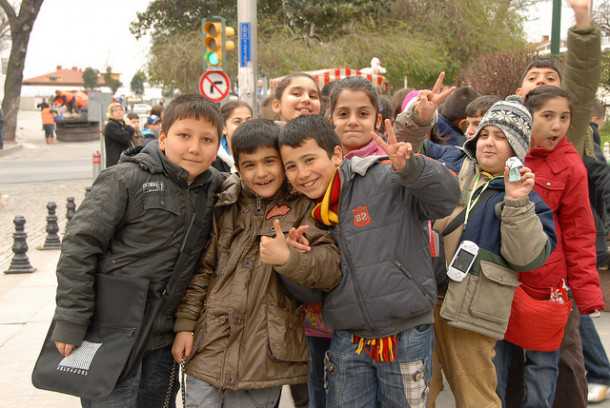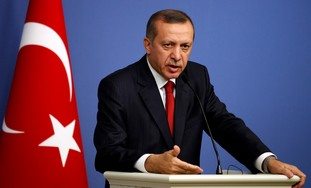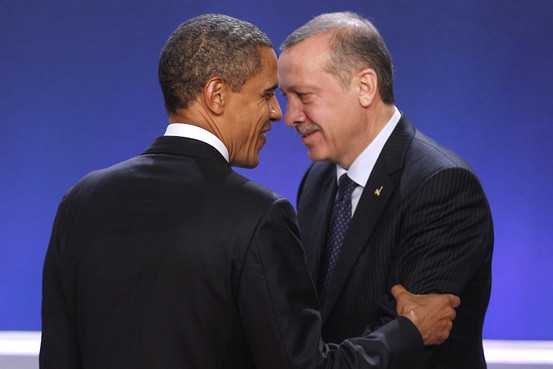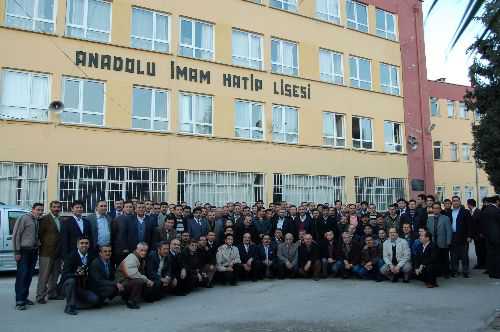The Turkish regime is gradually suppressing freedom as its society moves steadily toward a more hardline Islamic identity. Keep in mind that Turkey has been a very self-consciously modern and secular country. While there were always restrictions on freedom – especially regarding the expression of Kurdish nationalism – it was miles ahead of the usual Middle Eastern standards in that regard. And Istanbul was the ultimate expression of modern, secular Turkey.
Thus, a minor incident is of immense psychological importance. Here’s one of many. A woman wearing sweatpants sought to board a public bus and a dozen or more passengers blocked her way. One man said, “Look at her. Her head is not covered, shame!” Nobody on the bus came to her defense and the driver did nothing.
Why is this especially significant? Because the implication is that head covering for women should be mandatory in public and that those who advocate such measures will use intimidation to achieve this goal, unafraid of any possible consequences. On the contrary, it is those who would advocate freedom of choice who are intimidated.
Then there’s the new law requiring that every shopping mall, movie theater and indeed every public facility in the country have a Muslim prayer room. One newspaper columnist who ridiculed this idea wrote, “Have you ever heard any conservative or religious person in this country complaining: ‘I can’t live my religion if there are no [mosques] in opera or ballet houses?’”
In other words, such legislation is not happening because there is a burning need for such things but because the government is Islamizing the country. It should be pointed out that anyone who wants to pray could easily find an existing mosque not far away and, indeed, a dedicated room isn’t even a requirement for Muslim prayer.
OF COURSE, it should be understood that the government is offering a lot of incentives for becoming not just a practicing Muslim but an Islamist. Consider. You want a high-level career, especially in government. Do you go to an academic high school with a tough curriculum or to an Islamic school which focuses not only on religion but on an Islamist interpretation?
The number of students attending such religious (imam-hatip) schools has tripled in 10 years, rising to seven percent. The gap is narrowing, especially true for “regular” students since enrollment at open admissions schools fell from 50% to about 25 percent. The rest go to selective schools (21%) or vocational schools (50%).
The government has now decreed that Islamic schools be accorded equal status with academic schools for purposes of admission to university and also that Islamic junior high schools will be established. These decisions will accelerate the relative growth of education that indoctrinates students with the regime’s ideology.
THEN THERE’S Prime Minister Recep Erdogan’s announcement that virtually all abortions will be banned, even if the woman was raped.
The court-authorized prosecution of a famous Turkish concert pianist, Fazil Say, for sending tweets critical of Islam is another sign of the times. So is the sentencing of a student to eight years’ imprisonment solely for the crime of holding up a sign demanding free education at an Erdogan rally. So is the sentencing of a former top general to one year in prison for telling a villager in a personal conversation that the regime had sold out the country.
Most recently, the government has decreed that it will choose two-thirds of the Turkish Academy of Sciences’ members. Until now, the existing members chose the new ones, and one-third of them resigned in protest.
Then there’s the foreign policy realm, where there are also dozens of examples of the regime’s Islamist orientation. The basic trend is anti-American, ferociously anti-Israel, and supporting Iran and radical Islamist movements. Despite differences with Tehran over Syria – the Turkish regime wants a Sunni Islamist government there; Iran wants to keep its allied incumbents in power – the two countries are constantly expanding their trade to hitherto unprecedented levels.
When a US airstrike against terrorists went astray and 24 Pakistani soldiers were killed, Erdogan quickly demanded a US apology and called the dead “our martyrs.” It symbolized his eagerness to take the side of any Islamic country or movement against the United States. The Turkish regime has ignored, with US permission, the sanctions on Iran and the media in both countries is full of reports about their ever-tightening relations. The large portion of the Turkish media controlled by the regime systematically spreads anti- Americanism and public opinion polls show ever-rising hostility to the United States.
Toward Israel, the regime is so unrelentingly hostile that the leader of the opposition asked whether Erdogan intended to go to war against that country. It has now decided to file criminal charges against Israeli officials involved in the attempt to stop the ship Mavi Marmara from running the blockade on the Gaza Strip, a situation in which Turkish jihadists were killed after assaulting Israeli soldiers. It should be noted that the Turkish government was directly involved in working with a terrorist group – defined as such by the United States and Germany – in mounting that deliberate provocation.
Since then, Erdogan has had three non-negotiable demands: that Israel apologize, admitting it committed a crime; that reparations be paid to the families of the dead extremists on the basis of Israeli guilt; and that Israel stop all sanctions on the Hamas-ruled Gaza Strip. In response, Israel offered to express regrets and pay compensation on a humanitarian basis. Erdogan has refused all compromise – as indicated especially by his third demand – and has no desire to settle the issue.
Erdogan’s anti-Israel campaign has continued with such actions as insisting that NATO installations in Turkey not provide information to Israel, that Israel be excluded from joint maneuvers in which it formerly participated, and that Israel not be permitted to attend a NATO meeting and an international counter-terrorism conference. (The real problem with the counter-terrorism group is that the Obama administration made Turkey the co-director and didn’t even include Israel as a member when it launched the project last September 11.)
I have no problem if individual Turks want to be more pious in their religious observance. The problem is that this quickly slides over into intolerance, repression, extremism and a radical foreign policy. Moreover, in the long run the spending, restrictions and anti-intellectual policies might undermine Turkish democracy, stability and economic progress.
The writer is the director of Global Research in International Affairs (GLORIA) Center. He also publishes the Rubin Report blog http://rubinreports.blogspot.com/





